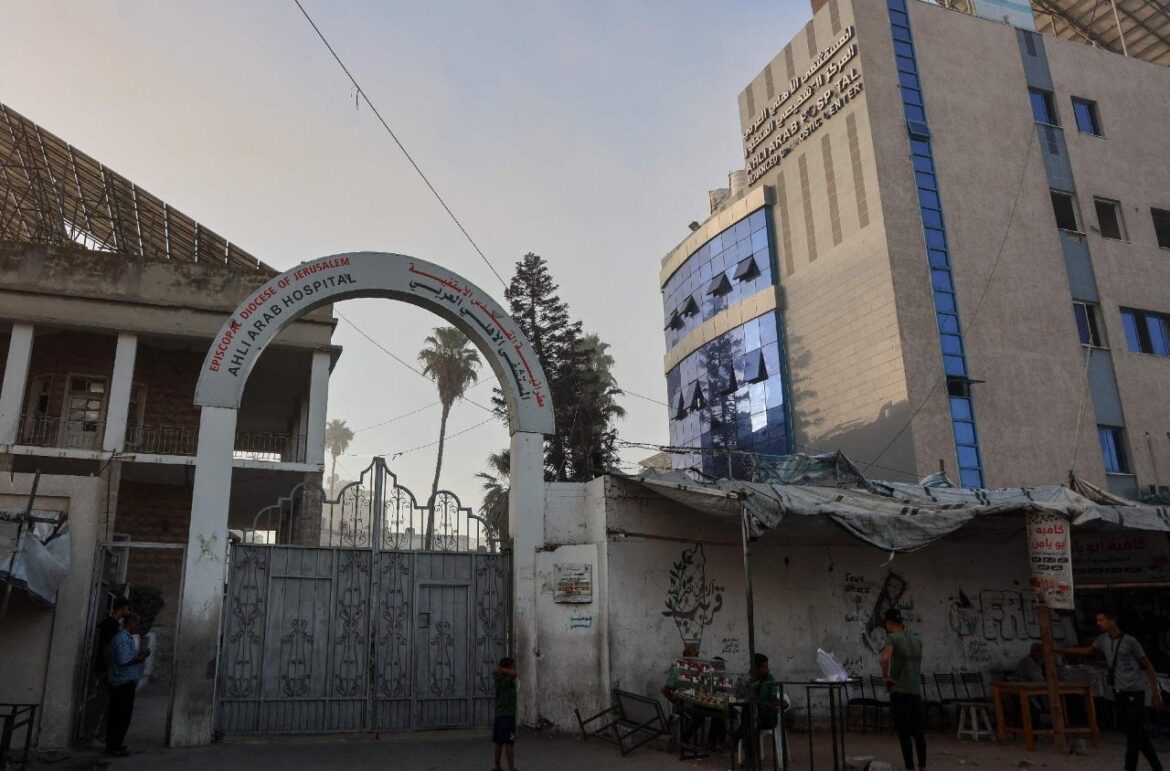Dr. Maher Ayyad describes the current dire situation of hospitals in the Strip: People “are living in small tents without any services—no electricity, no water supply, and, despite food recently coming across the border, no food.”
By Kielce Gussie
As the United Nations warns of the growing humanitarian crisis due to the man-made famine in the Gaza Strip, people on the ground face a serious lack of access to basic medical supplies.
In an interview with Vatican News’ Federico Piana, Dr. Maher Ayyad—who works at al-Ahli Arab, the only Christian hospital in the Gaza Strip—describes the current dire situation of hospitals.
A dire situation
With the Integrated Food Security Phase Classification confirming a famine in Gaza City for the first time and Israel’s approved plan to take complete control of Gaza, Dr. Ayyad says the situation is very difficult. People “are living in small tents without any services—no electricity, no water supply, and, despite food recently coming across the border, no food.”
The World Health Organization issued a new warning on 27 August regarding the deadly impacts of the ongoing Israeli blockade on Gaza. OCHA, the UN aid coordination office, reports a UN-supported community kitchen in Gaza City reopened 10 days ago and is now able to feed 5,000 people a day.
In need of most everything
Hospitals are no better. Dr. Ayyad explains they are overcrowded and patients have to spend nights on the ground in gardens and hallways due to the lack of space. They are in need of everything—from equipment and gauze to antibiotics and other medicine.
“We lose many patients because sometimes we have a lot of patients in need of surgery at the same time. So, we have to choose who we can help and who has a better survival rate”, Dr. Ayyad stresses.
Due to the number of patients, the seriousness of the injuries, and limited beds, people are sometimes forced to be discharged early to make room for others. Dr. Ayyad says, “sometimes if they are on ventilators, we do early weaning” to prepare patients to be discharged.
On top of that, he points out there is also a lack of well-trained staff to be able to run and operate the hospital. There are a number of doctors at the al-Ahli Arab hospital, but very few specialists. “We do what we can do, but the rest of the doctors are either junior doctors or residents in the depart different departments or volunteers and medical students,” Dr. Ayyad explains.
On average, 600-700 patients might visit the hospital to be treated each day and each day, the injuries and challenges are different.
We are all in the same boat
But there is not the option to seek help from a neighboring hospital. “Our hospitals in Gaza are almost all living with the same circumstances as we suffer from a lack of things. Others face the same problem.”
However, al-Ahli hospital is trying to work together with the other hospitals to share what they have with each other to save lives. As the only Christian hospital in the Gaza Strip, Dr. Ayyad describes how al-Ahli is cooperating with health authorities “trying to minimize the effects of this war.”
Peace means life
“War is death, and this peace is life”, Dr. Ayyad shares, “when we lose patients from any religion, we are sorry.” He urgently calls for an end to the war as soon as possible to avoid further bloodshed.
Appealing to the international community, the doctor pushes for an end to the violence that continuous to rage on in region. “War is catastrophic,” he argues, “War is death, and peace means life.”
But his plea is not just for Gaza. Dr. Ayyad stresses how important it is to end the war for Palestinians, Israelis, and people all around the world. “We would like to have peace and live together, and we pray that God will give wisdom to the leaders of this area to stop this war as soon as possible.”



